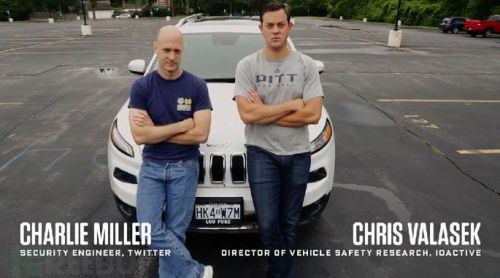According to recent reports, Karamba has introduced a groundbreaking anti-hacking software designed specifically to enhance network security for connected vehicles. As car manufacturers continue to embrace smart technology and automation, concerns about cybersecurity have become a top priority. With more vehicles being connected to the internet, the risk of cyber threats—ranging from hackers to malicious actors—has grown significantly.
The growing popularity of vehicle connectivity has raised serious concerns among automakers. They are increasingly worried about potential breaches that could allow unauthorized access to their systems. From hackers trying to steal data to pranksters messing with car functions, the risks are real and evolving rapidly.
One major incident that highlighted these dangers was in 2015 when two white-hat hackers successfully hacked into a Jeep Cherokee. This event led to a massive recall of 1.4 million vehicles by FCA to fix vulnerabilities in the Uconnect infotainment system. It served as a wake-up call for the industry.
As hacking methods evolve, so do the consequences. Unlike traditional devices like smartphones or servers, a connected vehicle presents a much higher risk if compromised. A hacker gaining control over a moving car could lead to life-threatening situations. Traditional security measures may not be fast enough to prevent such scenarios, making the need for advanced protection even more urgent.

Automakers are now taking proactive steps to address these challenges. David Barzilai, co-founder of Karamba, emphasized that ensuring data safety alone isn't enough. He stressed the importance of implementing multiple layers of security tailored for vehicle systems, which differ from conventional server or enterprise security approaches.
Barzilai pointed out that relying on post-intrusion detection methods, such as malware scanning, is too slow. Instead, the focus should be on preventing attacks before they happen. This approach is crucial, as once a hacker gains access, the damage can be irreversible.
With the rise of wireless communication technologies in automotive systems, the market for vehicle cybersecurity is expected to grow rapidly. Companies like Harman International have already taken action by acquiring cybersecurity firms such as TowerSec to strengthen their defenses. Similarly, Argus Cyber Security has demonstrated how a simple USB device can be used to hack into a vehicle’s systems, highlighting the need for constant vigilance.
Many automakers, including Tesla and FCA, offer bug bounty programs to incentivize hackers to report vulnerabilities rather than exploit them. These initiatives help companies identify and fix weaknesses before they can be exploited by malicious actors.

One of the main attack vectors involves the vehicle's electronic control units (ECUs) and wireless communication systems. Modern cars can have hundreds of ECUs, many of which communicate wirelessly, creating potential entry points for hackers. This complexity makes it challenging to develop a comprehensive defense strategy against all types of cyber threats.
Karamba's solution focuses on intrusion prevention by embedding its anti-hacking software directly into the ECU during manufacturing. This ensures that only authorized code can run, blocking any suspicious or unauthorized activity. However, experts like Glen De Vos of Delphi Automotive point out that while Karamba's software is an important layer of security, it is not a complete solution.
De Vos explained that connected vehicles are similar to gaming consoles or smartphones, where data is often stored both locally and in the cloud. Therefore, a multi-layered security approach is necessary, combining different technologies and strategies to protect the entire ecosystem.
Karamba, a startup focused on automotive cybersecurity, has seen significant growth since entering the market. In May of this year, the company completed a $12 million B-round funding round, bringing total investments to $17 million. Investors include Fontinalis Partners, whose co-founder is Bill Ford Jr., the chairman of Ford Motor Company.
The company's four founders are experienced in the Israeli high-tech industry, with some having served in the 8200 unit—a renowned intelligence and cybersecurity division of the Israeli Defense Forces. Their background in cyber warfare gives Karamba a unique advantage in developing cutting-edge security solutions for the automotive sector.
Despite its promising technology, Karamba has yet to secure major partnerships with automakers or suppliers. However, the company has engaged in discussions with 16 potential partners in 2016, signaling a strong interest in the future of vehicle cybersecurity.
The space-saving design and most optimized wiring are two major characteristics of JST Spring-cage Connection Terminal Blocks.The front Wiring method saves the space between two trunking.
Connect conductors that are vibration resistant,gas-tight,and have long-term stability-with the spring-loaded conductor contacting.Two potentials can be routed in parallel through a terminal point in the double function shaft,Accessories can be used to test and identify.
Supplying wiring cross section: 1.5mm²,2.5mm²,4mm²,6mm²,10mm²and16mm².
Terminal Block Spring Connect,Spring Levels Terminal Block,3 Layers Terminal Block,Multi Levels Terminal Blocks
Wonke Electric CO.,Ltd. , https://www.wkdq-electric.com